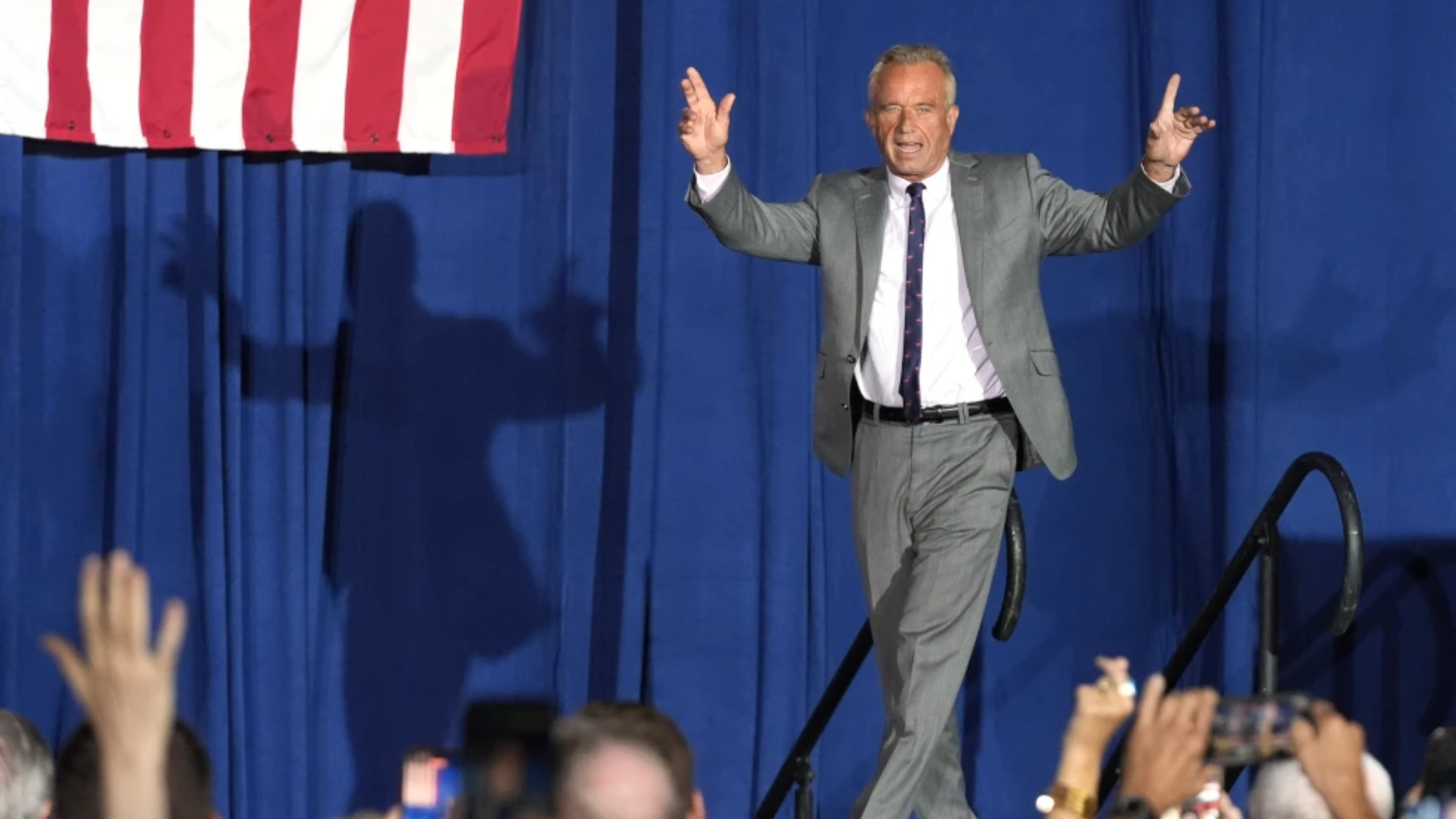CENTENNIAL, Colo. (AP) — The first time James Holmes appeared in court, he wore chains and an orange jail jumpsuit and looked dazed, with his hair dyed a comic-book shade of orange.
As attorneys prepared Monday to begin jury selection in the Colorado theater shooting, it was a far different Holmes at the defense table: The jail uniform was replaced with khakis, an untucked blue shirt with white stripes and a blue blazer. His hair, now a dark brown, was neatly trimmed.
The former graduate student whose attorneys admit he opened fire at a midnight "Batman" movie back in 2012 also had a curly, medium-length beard and wore oval-shaped reddish glasses. No restraints were visible, though the judge had ordered him to be tethered to the floor in a way the public couldn't see for the trial.
Holmes' more conventional appearance was an indication that the case was drawing closer to the time when a jury would see the defendant accused of killing 12 people and wounding 70 others at a suburban Denver theater. But first attorneys have to sort through thousands of potential jurors.
Court officials initially summoned a jury pool of 9,000 people, the largest in the nation's history. But that figure later fell to 7,000 after some summons could not be delivered and some people were excused. The pool will be winnowed to a handful in the weeks ahead.
It could take until June to seat the jurors and alternates for a trial that might last until October.
Holmes, who has pleaded not guilty by reason of insanity to murder and attempted murder charges, could get the death penalty if convicted.
Formal jury selection was to begin later Tuesday afternoon with the first group of up to 250 people filling out questionnaires.
Judge Carlos Samour suggested that attorneys might not have to screen all the prospective jurors before beginning to select panelists. He said the process could stop after a few thousand people are screened if both sides agree they have a large enough pool of people.
The defense objected to the use of a video during the trial, saying prosecutors gave it to them too late. The video is apparently from the jail where Holmes has been held, but its contents have not been made public.
The judge also went over ground rules for jury selection and the trial, urging attorneys on both sides to be professional and respectful.
"We're going to be spending a lot of time together," Samour said.
The scope of jury selection and the trial are testaments to the logistical hurdles of trying the rare case of a mass shooter who survives his attack.
"The public is going to get an insight into the mind of a killer who says he doesn't know right from wrong," said Alan Tuerkheimer, a Chicago-based jury consultant. "It is really rare. It just doesn't usually come to this."
Shortly before 1 p.m., prospective jurors began walking into the courtroom. Some carried books or newspapers or looked at their cellphones as they waited to pass through a security station in the hallway, their second screening since entering the courthouse.
The case has sparked an emotionally charged debate, with Holmes' parents begging for a plea deal that would save his life, while many survivors and family members of victims have demanded that he be executed.
After the July 20, 2012, shooting, the 27-year-old Holmes was arrested as he stripped off combat gear in the parking lot of the Century 16 movie theater in Aurora.
If jurors convict him, they must then decide whether to recommend the death penalty. If Holmes is acquitted, he would be committed to the state mental hospital indefinitely.
Defense attorneys acknowledge Holmes was the gunman in the attack but say he was in the grip of a psychotic episode at the time.
Under Colorado law, defendants are not legally liable for their acts if their minds are so "diseased" that they cannot distinguish right from wrong. Part of the reason the case has dragged on is the battle over whether that standard applies to Holmes.
Few details on those arguments have been made public. Prosecutors and defense attorneys remain under a long-running gag order, and court documents detailing the issue have stayed under seal.
Holmes' sanity was evaluated by a state psychiatrist but the results were not made public. Prosecutors objected to the findings and persuaded a judge to order a second evaluation. Those results were contested by the defense.
Prosecutors previously rejected at least one plea deal proposed by Holmes' attorneys, criticizing the lawyers for publicizing the offer and calling it a ploy meant to draw the public and the judge into what should be private plea negotiations.
Survivors of the attack and family members of victims have had a long time to get ready for a trial.
"We've all been to therapists and have talked to our families and have our support groups, so we're prepared," said Marcus Weaver, who was shot in the arm and whose friend Rebecca Wingo died in the attack. "It's going to be quite the journey."
Judge Samour called nearly nine times as many prospective jurors as were summoned in the ongoing Boston marathon bombing trial. That meant the county's 600,000 residents had a nearly one-in-50 chance of being selected.
Copyright 2015 by The Associated Press. All Rights Reserved. This material may not be published, broadcast, rewritten or redistributed. (PHOTO: AP Photo/ Brennan Linsley)





















